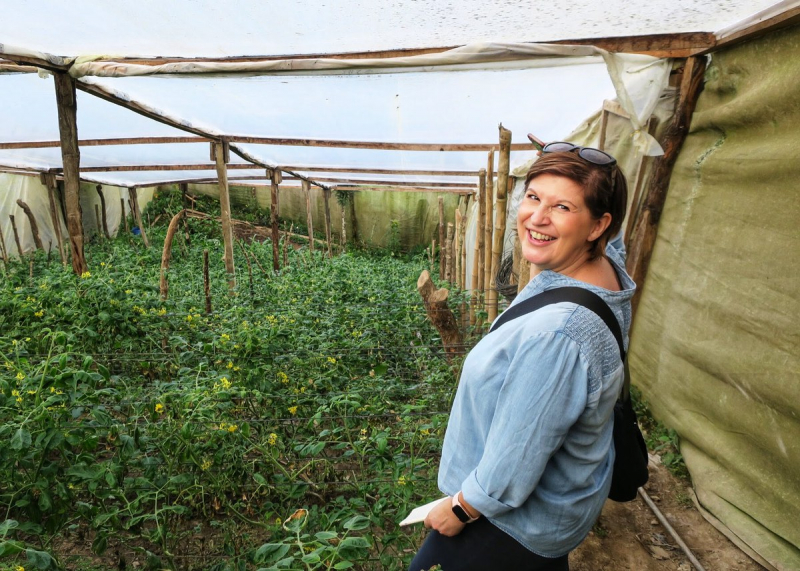Nolin elected to geographical society's College of Fellows

With more than two decades as a social geographer, an advocate for social justice and educator, Dr. Catherine Nolin, a Geography Professor at the University of Northern British Columbia, has been elected to the College of Fellows of the Royal Canadian Geographical Society.
“Fellows are individuals who have distinguished themselves by directly contributing to scientific knowledge in the field of geography, geographical exploration or allied sciences (i.e., archaeology, atmospheric sciences, marine biology, zoology, etc.),” the RCGS website states. “Such accomplishments usually are evidenced by published books, scientific publications or major mainstream media coverage documenting fieldwork or exploration.”
Dr. Nolin’s research interests in Guatemala include political violence, violence of development, mining injustice, social justice, human rights, forced migration, and qualitative research methodologies. She has also spent more than 25 years grappling with life after the Guatemalan genocides through long-term fieldwork, critical research, activism, and opening these experiences to Canadian university students through her regular field schools to Guatemala. Her most recent book, Canadian Mining in the Aftermath of Genocides in Guatemala, is co-edited with Grahame Russell.
She says it’s an honour to be elected to the College of Fellows of the RCGS.
“When I look at this long list of Fellows, first named in the years after 1929, I am humbled to be among the many well-accomplished and inspirational Canadians,” Dr. Nolin said. “The Society’s Fellows work in various ways to expand geographical knowledge and literacy across Canada and support the RCGS’s important educational, research and expeditions programs. I am grateful for this recognition and look forward to future collaborations in support of the RCGS.”
She was nominated for this recognition by Dr. Michael Pisaric, a physical geographer from Brock University who examines how climate change affects vegetation development at the subarctic and subalpine treelines. Dr. Pisaric, elected to the College of Fellows a few years ago, and Dr. Nolin, were part of the same PhD cohort in the Department of Geography at Queen’s University and defended their dissertations within weeks of each other.
"One of the expectations of Fellows of the Royal Canadian Geographical Society is to make Canada better known to Canadians and the world. Dr. Nolin compellingly fulfills these expectations from her nearly two decades of being an accomplished geographic scholar and educator,” states Dr. Pisaric’s nomination.
“Dr. Nolin brings geographic expertise to the education of students at UNBC and the Canadian public through important work on human rights and the geographies of migration and settlement. Dr. Nolin will certainly bring expertise, geographic knowledge and commitment to the RCGS.”
